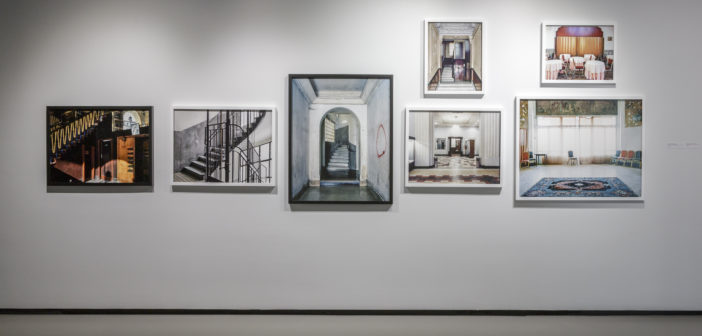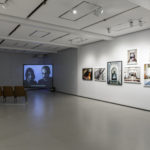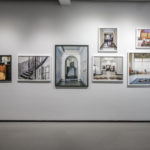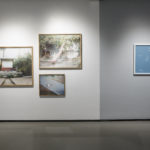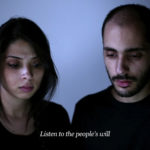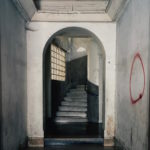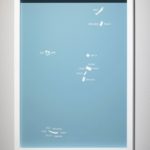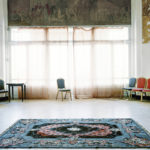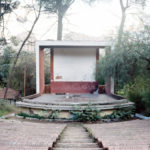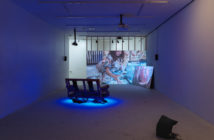Bouchra Khalili’s solo exhibition, now on view at the Radcliffe Institute, features a number of works from her 2015 project Foreign Office. The exhibition includes photographs of locations in Algiers that once housed various liberation movements, accompanied by a video, written and directed by Khalili, that features two young Algerian translators describing pieces of revolutionary history that occurred in Algiers and beyond. At one point in the video, they describe “The Geography” of Algiers, pointing to a map that indicates where certain groups convened and organized throughout the Algerian capital. Once this revolutionary geography is defined, the translators go on to explain—often by presenting photographs of notable revolutionary leaders—“The History,” events that include Nelson Mandela’s visit to the Algerian Liberation Army Headquarters in Oujda, the Brazilian poet Mario de Andrade learning “how to write with a gun,” and meetings held in Algiers by Eldridge Cleaver and Malcolm X. All of these events demonstrate the Algerian Revolution’s influence beyond Algeria’s borders. Perhaps to symbolize their absence, the translators take away all of the leaders’ photographs by the end of the film, summarizing each of their failed attempts to secure liberation from colonial power.
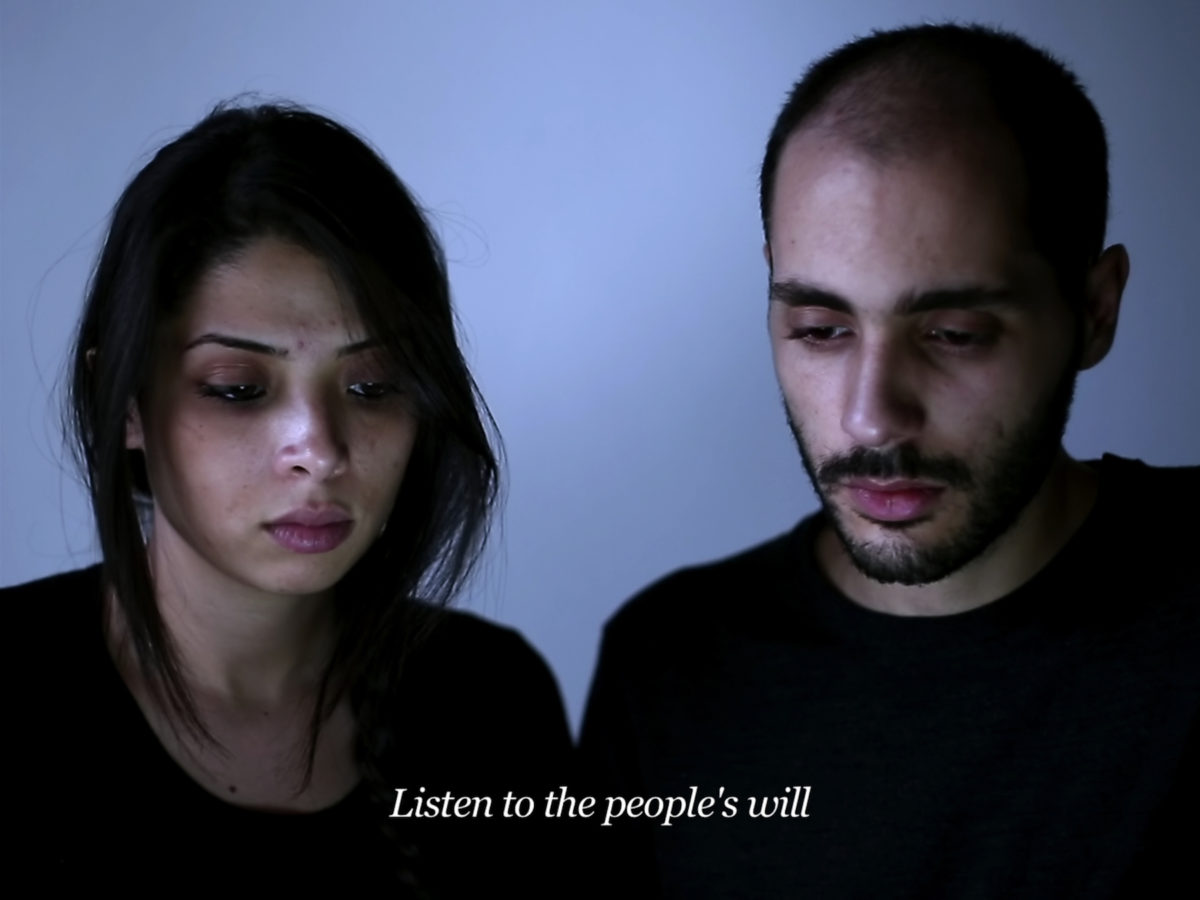
Bouchra Khalili, still from "Foreign Office," 2015, digital film, color, sound, Image courtesy of the artist.
The stark emptiness of Khalili’s photographs seem to precede this video, which seeks to examine exactly why these revolutionary spaces might now be so empty. Next to the historically-focused film, these contemporary still images provide a story of the loss of these concerted efforts to celebrate independence of African countries and their culture. Works like Headquarters of the MPLA delegation (People’s Movement for the Liberation of Angola) (2015) depict bare architectural elements that seem to hold whispers of human emotion and organized activity. The photograph reveals a cavernously empty stairway surrounded by chipped and smudged walls obscured by shadow. Others suggest specific events, like Hotel El Djazair, Ex-Saint Georges, El Mouradia Area, Residence of Stokely Carmichael and Miriam Makeba during the 1969 Pan-African Festival of Algiers (2015). The 1969 Pan-African Cultural Festival, which included hundreds of delegates from thirty-one independent nations, sought to celebrate the anti-colonialist notions of the Algerian Revolution. But in Khalili’s image of the hotel, all we are shown is an empty reception lounge with numerous tables and chairs, festively decorated and brightly lit, as if awaiting a gathering.
The word “office” evokes the occupation of space in a number of ways. Occupation suggests an exchange of power, but I am also reminded Robert Hayden’s poem “Those Winter Sundays,” in which he wonders, “What did I know, what did I know / of love’s austere and lonely offices?” Rather than simply a description of a functional place, Khalili’s “office” speaks similarly to the functions of pain and the room we allow (or don’t allow) it to occupy. Simultaneously, the word “office” recalls the work that is done in the process of researching untold histories, or the act of translation and its role in spreading messages. In this work, Khalili conveys her expressed sentiment that language is “always a translation,” an idea that also relates to her transformative treatment of geography and history in Foreign Office, reclaiming power through story-telling.
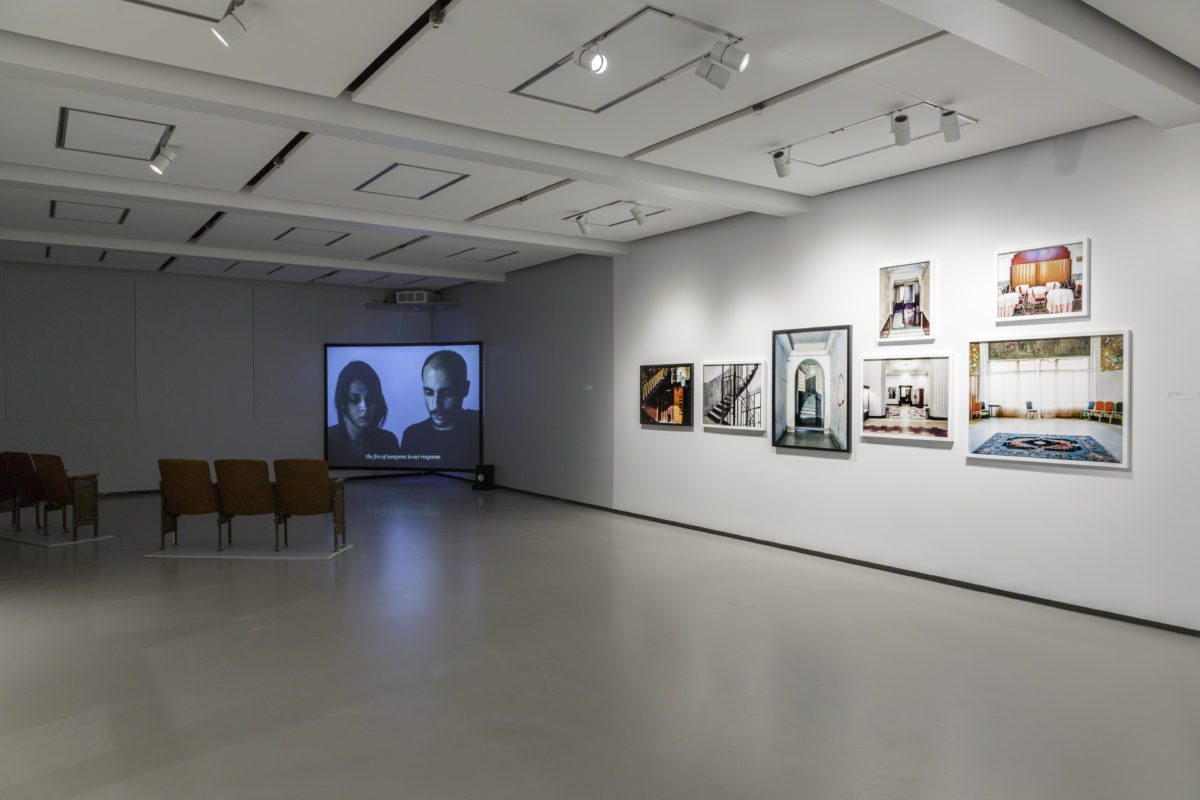
Installation view of "Foreign Office," on view at the Radcliffe Institute, March 26-April 21, 2018, image courtesy of the artist.
Foreign Office certainly displays an awareness of geographic space throughout. Photographs that depict neighboring locations are grouped together, so that those taken around the Algiers City Center, for example, occupy a single wall. The geographic notions are satisfying, most notably in the silkscreen, The Archipelago, which depicts groupings of white forms and the names of various countries focused on liberation, including Zimbabwe, Palestine, and Portugal. Grouping these titles visually breaks apart prescribed borders and unites these countries instead through shared goals. There is a defined feeling of gravity throughout, suggesting the potentially powerful exchange generated when people engage and organize.
Foreign Office insists quite powerfully that it is not simply translating, but presenting a relevant and timely historical moment. The emptiness in the photographs suggests a longing for a utopia, which is mirrored in the translators’ actions as they remove images from the video’s frame, withdrawing them just as easily as they have presented them to the audience. This process suggests not only the abandonment of revolutionary leaders, but also that their history is ephemeral, unless Algerians are willing to do the work to preserve it. The translators, however, question why this should be the responsibility of Algerians solely, explaining how revolutionary movements, like the international section of the Black Panthers, were unsuccessful. “They wanted to change the world,” says one of the translators, “And we just want to move away from this world.”
Foreign Office is on view at the Johnson-Kulukundis Family Gallery at Radcliffe Institute in Cambridge. The exhibition will be open through Saturday, April 21, 2018.
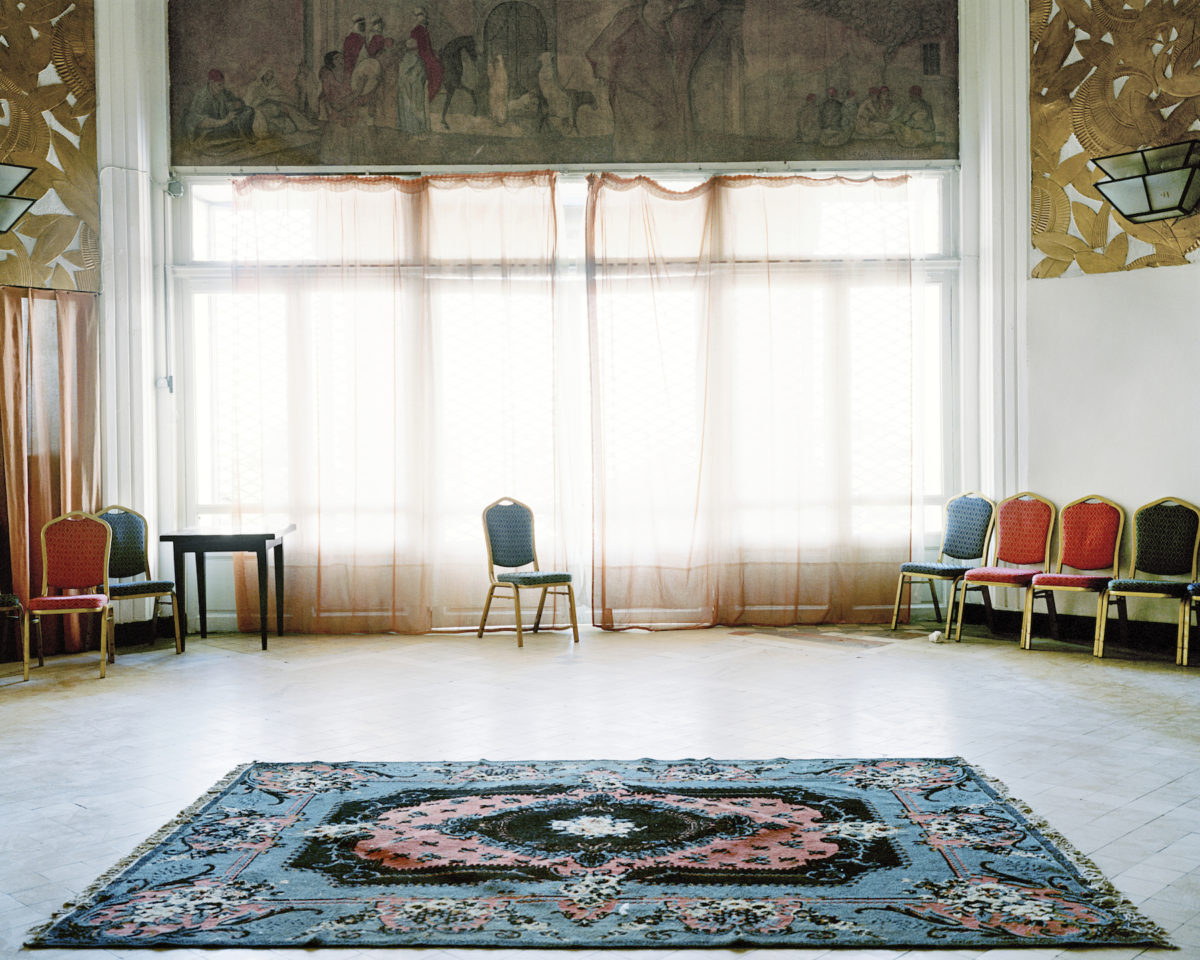
Bouchra Khalili, "Hotel El Safir, Ex-Aletti, Algiers City Center. Residence of the Black Panther Party delegation during the 1969 Pan-African Festival of Algiers. Fig. 1: Entrance of the former casino," 2015, C-print, 100 x 125 cm, Image courtesy of the artist.
- Installation view of “Foreign Office,” on view at the Radcliffe Institute, March 26-April 21, 2018, image courtesy of the artist.
- Installation view of “Foreign Office,” on view at the Radcliffe Institute, March 26-April 21, 2018, image courtesy of the artist.
- Installation view of “Foreign Office,” on view at the Radcliffe Institute, March 26-April 21, 2018, image courtesy of the artist.
- Bouchra Khalili, still from “Foreign Office,” 2015, digital film, color, sound, Image courtesy of the artist.
- Bouchra Khalili, “Headquarters of the FPLN representation (Portuguese National Liberation Front), Meissonier area,” 2015, C-print, 80 x 100 cm, Image courtesy of the artist.
- Bouchra Khalili, “The Archipelago,” n.d., framed silkscreen print mounted on aluminum, 70 x 50 cm, Image courtesy of the artist.
- Bouchra Khalili, “Hotel El Safir, Ex-Aletti, Algiers City Center. Residence of the Black Panther Party delegation during the 1969 Pan-African Festival of Algiers. Fig. 1: Entrance of the former casino,” 2015, C-print, 100 x 125 cm, Image courtesy of the artist.
- Bouchra Khalili, “Centre Familial de Ben Aknoun, Ben Aknoun Area. Location of Kateb Yacine’s house. Fig. 1 : Theatre de verdure,” 2015, C-print, 100 x 120 cm, Image courtesy of the artist.

